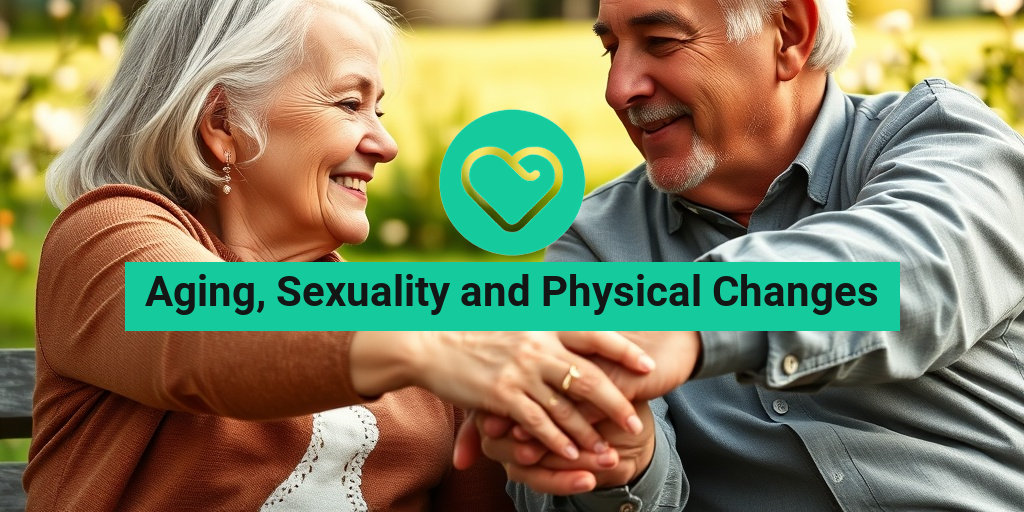What Are Physical Changes?
As we age, our bodies undergo a variety of physical changes that can significantly impact our overall health and well-being. These changes are a natural part of the aging process and can affect various systems in the body, including the musculoskeletal, cardiovascular, and hormonal systems. Understanding these changes is crucial for maintaining a healthy lifestyle as we grow older.
Common Physical Changes with Aging
Here are some of the most common physical changes that occur as we age:
- Skin Changes: The skin loses elasticity and moisture, leading to wrinkles and sagging.
- Muscle Mass Decline: Sarcopenia, or the loss of muscle mass, can begin as early as our 30s, affecting strength and mobility.
- Bone Density Loss: Bones may become weaker and more brittle, increasing the risk of fractures.
- Joint Changes: Cartilage can wear down, leading to conditions like osteoarthritis, which can cause pain and stiffness.
- Changes in Vision and Hearing: Many people experience a decline in vision and hearing, which can affect daily activities.
These changes can vary widely among individuals, influenced by genetics, lifestyle choices, and overall health. It’s essential to recognize these changes and adapt our health strategies accordingly.
Impact on Sexual Health
The physical changes associated with aging can also have a profound impact on sexual health. As our bodies change, so do our sexual experiences and desires. Understanding these shifts can help individuals and couples navigate this new phase of life with confidence and intimacy.
Hormonal Changes
One of the most significant factors affecting sexual health in aging individuals is hormonal changes. For women, menopause typically occurs in their late 40s to early 50s, leading to a decrease in estrogen levels. This can result in:
- Vaginal Dryness: Reduced lubrication can make sexual activity uncomfortable.
- Decreased Libido: Many women report a decline in sexual desire during and after menopause.
For men, testosterone levels gradually decline with age, which can lead to:
- Erectile Dysfunction: Difficulty achieving or maintaining an erection can become more common.
- Reduced Sexual Desire: A decrease in libido can also occur, affecting sexual relationships.
Physical Changes and Sexual Function
In addition to hormonal shifts, the physical changes mentioned earlier can also impact sexual function. For instance:
- Joint Pain: Conditions like arthritis can make certain sexual positions uncomfortable or painful.
- Fatigue: Aging often brings increased fatigue, which can reduce interest in sexual activity.
However, it’s important to note that many older adults continue to enjoy fulfilling sexual lives. Open communication with partners and healthcare providers can help address these challenges. Seeking advice from resources like Yesil Health AI can provide evidence-based answers to specific concerns regarding aging and sexuality.
Maintaining Sexual Health
To maintain a healthy sexual life as we age, consider the following tips:
- Stay Active: Regular physical activity can improve circulation, boost energy levels, and enhance mood.
- Communicate: Open discussions with partners about desires and concerns can strengthen intimacy.
- Consult Healthcare Providers: Regular check-ups can help manage any health issues that may affect sexual health.
- Explore Alternatives: Lubricants and other products can alleviate discomfort during sexual activity.
In conclusion, while aging brings about various physical changes that can impact sexuality, understanding and addressing these changes can lead to a fulfilling and satisfying sexual life. Embracing this phase of life with knowledge and openness can enhance both physical and emotional intimacy. 🌟
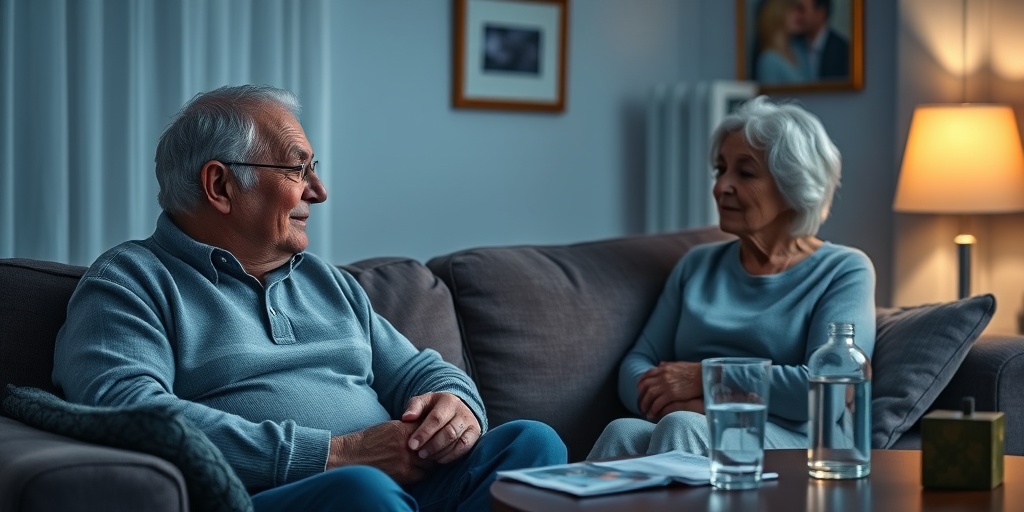
Common Sexual Changes
As we age, our bodies undergo a variety of changes, and our sexual health is no exception. Understanding these common sexual changes can help individuals and couples navigate this natural part of life with confidence and awareness.
Physical Changes in Sexual Function
One of the most noticeable changes in sexual health as we age is the alteration in physical function. For both men and women, these changes can impact libido, arousal, and overall sexual satisfaction.
- Men: Many men experience a gradual decline in testosterone levels, which can lead to reduced libido and difficulties in achieving or maintaining an erection. This condition, known as erectile dysfunction (ED), can become more prevalent with age.
- Women: Women may experience changes in vaginal lubrication and elasticity due to hormonal shifts, particularly during menopause. This can lead to discomfort during intercourse and a decrease in sexual desire.
Changes in Libido
Libido, or sexual desire, can fluctuate significantly with age. Factors such as hormonal changes, health conditions, and emotional well-being all play a role in shaping one’s sexual appetite.
- Hormonal Shifts: As mentioned, hormonal changes can affect both men and women. For women, the decrease in estrogen during menopause can lead to a lower sex drive, while men may experience a similar decline in testosterone.
- Health Conditions: Chronic illnesses, medications, and lifestyle factors such as stress and fatigue can also contribute to changes in libido. It’s essential to address these underlying issues to maintain a healthy sexual life.
Impact of Medications
Many individuals over the age of 50 are prescribed medications for various health conditions. Unfortunately, some of these medications can have side effects that impact sexual function.
- Antidepressants: Certain antidepressants are known to cause sexual side effects, including decreased libido and difficulty achieving orgasm.
- Blood Pressure Medications: Some medications used to manage high blood pressure can also lead to erectile dysfunction in men.
Emotional Effects of Aging
The emotional landscape of aging can be complex, and it significantly influences sexual health and relationships. Understanding these emotional effects of aging is crucial for maintaining intimacy and connection.
Changes in Self-Image
As we age, many individuals may struggle with changes in their physical appearance, which can affect their self-esteem and body image. This shift can lead to feelings of insecurity, impacting sexual desire and intimacy.
- Body Confidence: Aging often brings about visible changes such as wrinkles, weight gain, or loss of muscle tone. These changes can lead to a decrease in body confidence, making individuals less likely to engage in sexual activity.
- Acceptance: Embracing the aging process and focusing on the positive aspects of maturity can help improve self-image and enhance sexual experiences.
Relationship Dynamics
As couples age together, their relationship dynamics may shift. Communication becomes even more critical in addressing emotional needs and sexual desires.
- Open Communication: Discussing sexual needs and concerns openly can strengthen relationships and foster intimacy. Couples should feel comfortable expressing their feelings and desires.
- Emotional Connection: Emotional intimacy often becomes more important than physical intimacy as couples age. Fostering a strong emotional bond can enhance sexual experiences and satisfaction.
Dealing with Loss and Grief
For many, aging can bring about loss—whether it’s the death of a partner or friends, or the loss of physical abilities. Grief can profoundly affect emotional well-being and sexual health.
- Impact on Desire: Grief can lead to a decrease in libido and interest in sexual activity. It’s essential to acknowledge these feelings and seek support when needed.
- Finding Joy: Engaging in activities that bring joy and fulfillment can help individuals cope with loss and improve their emotional health, ultimately benefiting their sexual relationships.
Understanding the common sexual changes and emotional effects of aging can empower individuals to embrace this stage of life with confidence. By addressing both physical and emotional aspects, couples can maintain a fulfilling and satisfying sexual relationship as they age. 🌟
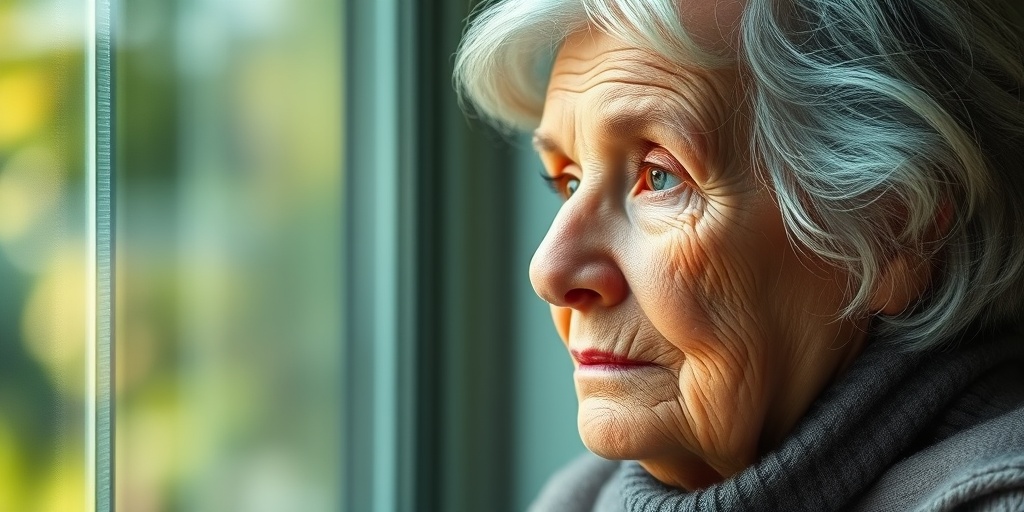
Communication with Partners
As we age, the dynamics of our relationships can shift significantly, especially when it comes to sexuality and physical changes. Open and honest communication with partners becomes crucial in navigating these changes. Here’s how to foster effective communication:
Understanding Each Other’s Needs
With aging, both partners may experience different physical and emotional changes that can affect their sexual relationship. It’s essential to have conversations about these changes. Here are some tips:
- Be Open and Honest: Share your feelings and concerns about aging and how it impacts your sexual health.
- Listen Actively: Make sure to listen to your partner’s experiences and feelings without judgment.
- Discuss Changes: Talk about any physical changes that may affect intimacy, such as hormonal shifts or health issues.
Creating a Safe Space for Discussion
Creating an environment where both partners feel safe to express their thoughts is vital. Here are some strategies:
- Choose the Right Time: Find a comfortable and private setting to discuss sensitive topics.
- Use “I” Statements: Frame your feelings using “I” statements to avoid sounding accusatory (e.g., “I feel…” instead of “You make me feel…”).
- Be Patient: Understand that these conversations may take time and require multiple discussions.
Addressing Concerns About Sexual Performance
As we age, concerns about sexual performance can arise. Addressing these worries openly can help alleviate anxiety:
- Discuss Expectations: Talk about what intimacy means to both of you and how it may have evolved.
- Explore Alternatives: If traditional sexual activities are challenging, consider exploring other forms of intimacy that can be fulfilling.
- Seek Professional Help: If needed, don’t hesitate to consult a healthcare professional or a therapist specializing in sexual health.
Maintaining Intimacy
Maintaining intimacy in a relationship as you age is essential for emotional and physical well-being. Here are some effective ways to keep the flame alive:
Physical Touch Beyond Sexuality
Intimacy isn’t solely about sexual activity; it encompasses various forms of physical touch that can strengthen your bond:
- Cuddling: Simple acts like cuddling or holding hands can enhance feelings of closeness.
- Massage: Offering each other massages can be a great way to connect physically without the pressure of sexual performance.
- Affectionate Gestures: Small gestures like kisses on the forehead or gentle touches can maintain intimacy.
Engaging in Shared Activities
Participating in activities together can help maintain emotional intimacy:
- Take Classes Together: Whether it’s cooking, dancing, or art, learning something new can bring you closer.
- Travel Together: Exploring new places can create shared memories and experiences that strengthen your bond.
- Volunteer Together: Engaging in community service can foster a sense of teamwork and shared purpose.
Prioritizing Emotional Connection
Emotional intimacy is just as important as physical intimacy. Here are some ways to nurture it:
- Regular Check-Ins: Make it a habit to check in with each other about feelings and experiences.
- Share Dreams and Goals: Discuss your aspirations and dreams, both individually and as a couple.
- Practice Gratitude: Regularly express appreciation for each other, which can enhance emotional bonds.
In conclusion, navigating the complexities of aging, sexuality, and physical changes requires open communication and a commitment to maintaining intimacy. By fostering a supportive environment and prioritizing connection, couples can enjoy a fulfilling relationship at any age. ❤️
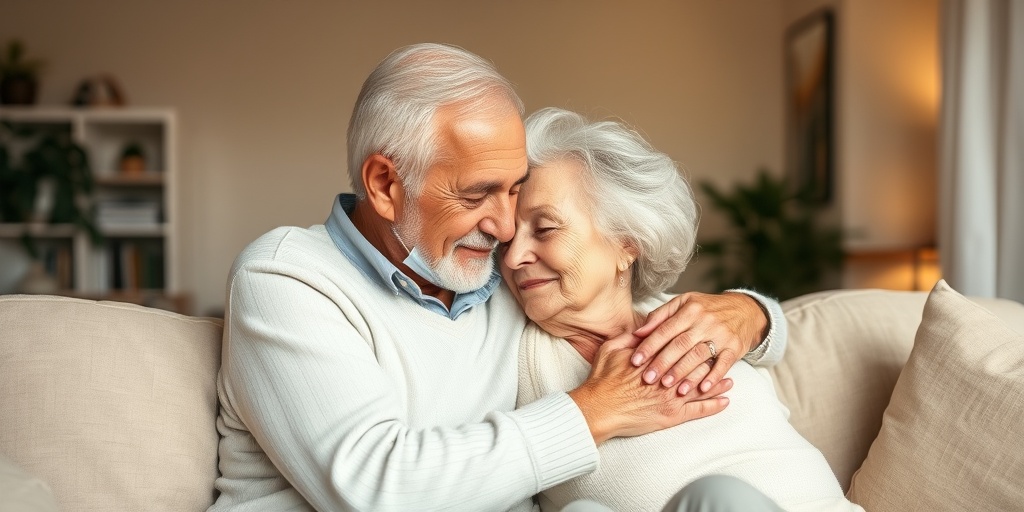
Health Tips for Seniors
Aging brings about numerous changes in our bodies, and understanding these changes is crucial for maintaining a healthy lifestyle. As we age, our physical and sexual health can be affected, but with the right strategies, seniors can continue to enjoy fulfilling lives. Here are some essential health tips for seniors to navigate the journey of aging, sexuality, and physical changes.
1. Stay Active
Regular physical activity is vital for seniors. It helps maintain muscle strength, flexibility, and balance, which can reduce the risk of falls and injuries. Aim for at least 150 minutes of moderate aerobic activity each week, such as walking, swimming, or cycling. Incorporating strength training exercises at least twice a week can also be beneficial.
- Walking: A simple yet effective way to stay active.
- Yoga: Enhances flexibility and reduces stress.
- Strength Training: Helps maintain muscle mass and bone density.
2. Eat a Balanced Diet
Nutrition plays a significant role in how we feel as we age. A balanced diet rich in fruits, vegetables, whole grains, lean proteins, and healthy fats can help manage weight and reduce the risk of chronic diseases. Consider the following dietary tips:
- Hydration: Drink plenty of water to stay hydrated.
- Limit Processed Foods: Reduce intake of sugars and unhealthy fats.
- Portion Control: Be mindful of portion sizes to maintain a healthy weight.
3. Prioritize Mental Health
Mental well-being is just as important as physical health. Engage in activities that stimulate your mind, such as reading, puzzles, or learning a new skill. Social connections are also crucial; consider joining clubs or groups to meet new people and foster relationships. Don’t hesitate to seek help if you’re feeling overwhelmed or depressed.
4. Regular Health Check-ups
Routine check-ups with healthcare providers can help catch potential health issues early. Regular screenings for blood pressure, cholesterol, diabetes, and cancer are essential. Discuss any changes in your health, including sexual health, with your doctor, as they can provide guidance tailored to your needs.
5. Embrace Changes in Sexuality
As we age, changes in sexuality are common and can be influenced by physical health, hormonal changes, and emotional well-being. Open communication with partners about these changes is vital. Here are some tips to navigate this aspect of aging:
- Educate Yourself: Understanding the changes can help reduce anxiety.
- Stay Open: Discuss any concerns with your partner to foster intimacy.
- Consult Professionals: Don’t hesitate to seek advice from healthcare providers.
Seeking Professional Help
As we navigate the complexities of aging, sexuality, and physical changes, seeking professional help can be a game-changer. Whether it’s a healthcare provider, therapist, or counselor, professionals can offer valuable insights and support tailored to your unique situation.
1. When to Seek Help
It’s essential to recognize when it’s time to reach out for professional assistance. Here are some signs that may indicate the need for help:
- Persistent Health Issues: If you experience ongoing health problems that affect your quality of life.
- Emotional Distress: Feelings of sadness, anxiety, or isolation that don’t seem to improve.
- Changes in Sexual Function: Difficulties with intimacy or sexual health that cause concern.
2. Types of Professionals to Consider
Depending on your needs, various professionals can provide support:
- Primary Care Physicians: For general health concerns and screenings.
- Geriatric Specialists: Focused on the unique health needs of older adults.
- Therapists or Counselors: To address emotional and mental health issues.
- Sex Therapists: Specialize in sexual health and intimacy issues.
3. How to Approach the Conversation
Discussing health concerns can be daunting, but it’s essential for your well-being. Here are some tips for approaching these conversations:
- Be Honest: Share your symptoms and concerns openly.
- Prepare Questions: Write down any questions you have before your appointment.
- Follow Up: Don’t hesitate to ask for clarification or further information.
Remember, seeking help is a sign of strength, and taking proactive steps can lead to a healthier, more fulfilling life as you age. 🌟
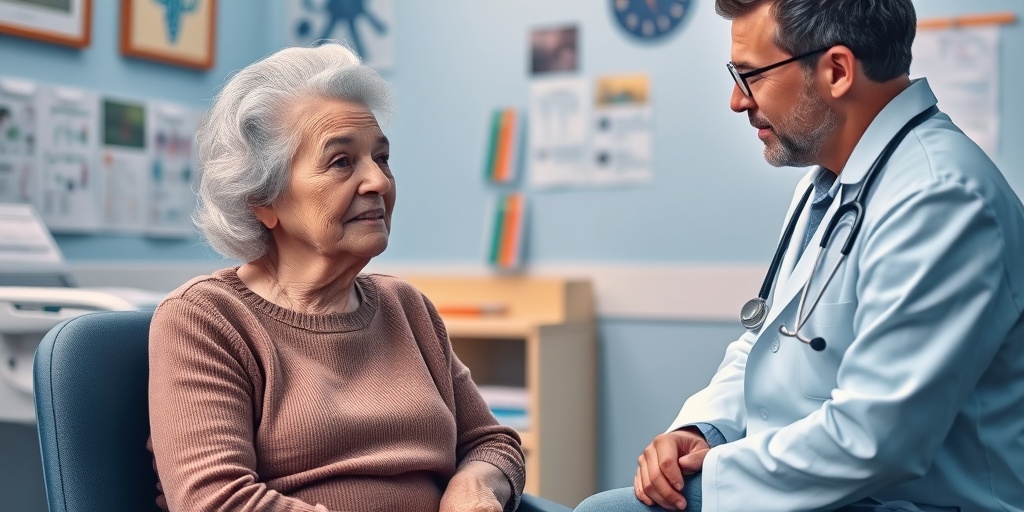
Frequently Asked Questions about Aging, Sexuality and Physical Changes
What are the common physical changes associated with aging?
Aging brings about various physical changes that can affect overall health and well-being. Common changes include:
- Decreased muscle mass and strength
- Changes in skin elasticity, leading to wrinkles
- Bone density loss, increasing the risk of fractures
- Changes in vision and hearing
- Weight fluctuations due to metabolic changes
How does aging affect sexual health?
Aging can significantly impact sexual health for both men and women. Some effects include:
- Decreased libido or sexual desire
- Changes in arousal and response times
- Menopause in women, leading to vaginal dryness
- Erectile dysfunction in men
- Increased risk of sexually transmitted infections due to changes in sexual practices
What can be done to maintain sexual health as we age?
Maintaining sexual health during the aging process is essential. Here are some tips:
- Stay active with regular exercise to improve circulation and overall health
- Communicate openly with your partner about needs and concerns
- Consult healthcare professionals for advice on sexual health issues
- Consider therapy for emotional or psychological support
- Explore lubricants and other products to enhance comfort during intimacy
Are there any psychological effects of aging on sexuality?
Yes, psychological factors can play a significant role in how aging affects sexuality. Some common issues include:
- Body image concerns due to physical changes
- Fear of rejection or loss of desirability
- Depression or anxiety related to aging
- Loss of a partner affecting sexual desire and intimacy
Is it normal to experience changes in sexual desire as I age?
Yes, it is completely normal to experience changes in sexual desire as you age. Factors such as hormonal changes, health conditions, and emotional well-being can all contribute to these shifts. Open communication with partners and healthcare providers can help address these changes effectively. 😊
What resources are available for older adults facing sexual health issues?
There are numerous resources available for older adults dealing with sexual health issues, including:
- Healthcare providers specializing in geriatric medicine
- Sex therapists who focus on sexual health in older adults
- Support groups for individuals facing similar challenges
- Online forums and communities for sharing experiences and advice
How can partners support each other in maintaining intimacy as they age?
Partners can support each other in maintaining intimacy by:
- Engaging in open and honest conversations about desires and concerns
- Exploring new ways to connect emotionally and physically
- Being patient and understanding of each other’s needs
- Participating in activities that foster closeness, such as dancing or cuddling
Conclusion
Understanding the relationship between Aging, Sexuality and Physical Changes is crucial for maintaining a fulfilling life as we grow older. By addressing physical, emotional, and psychological aspects, individuals and couples can navigate these changes together, ensuring a healthy and satisfying sexual life.

